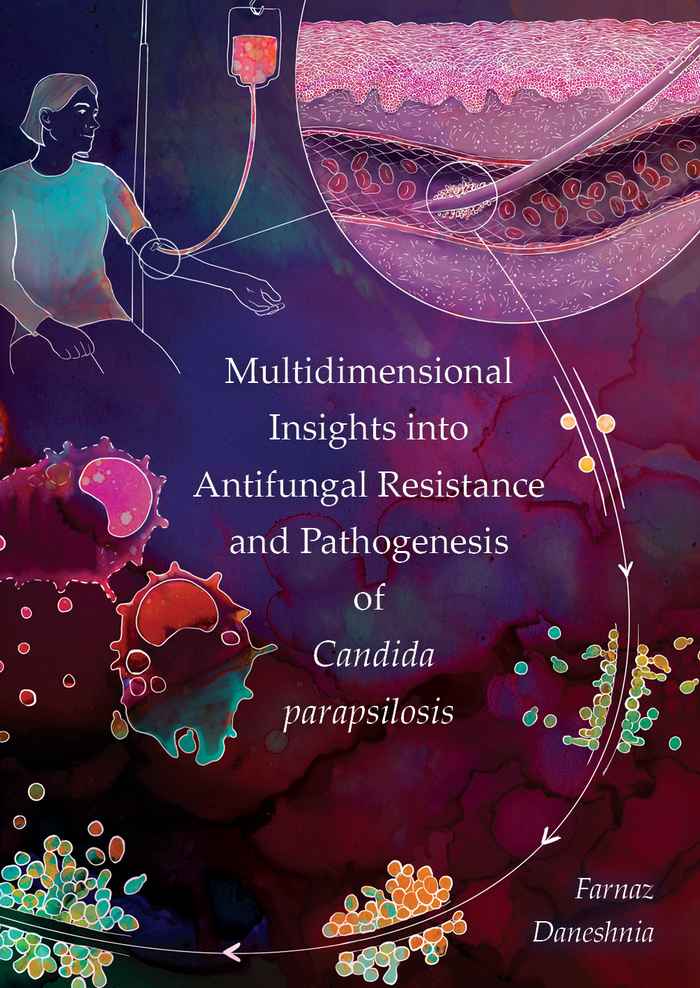PhD defence ceremony by Farnaz Daneshnia
- Date
- 10 December 2025
- Time
- 14:00
- Location
- Aula - Lutherse kerk

Candida parapsilosis, once considered uniformly susceptible to antifungal agents, has recently emerged as a significant clinical threat due to the rise of fluconazole-resistant (FLCR) and multidrug-resistant (MDR) strains. These resistant isolates are often implicated in persistent, geographically widespread outbreaks, highlighting the need for a deeper understanding of their clinical, molecular, and immunological implications.
This thesis investigates the global and clinical significance of FLCR and MDR C. parapsilosis outbreaks, with a particular focus on strains from Turkey and Brazil. It uncovers the molecular mechanisms that underpin antifungal resistance and tolerance, drawing on a combination of genomic, functional, and immunological analyses. A comprehensive expert review outlines the increasing prevalence and clinical challenges posed by FLCR C. parapsilosis in contemporary healthcare settings.
Through whole-genome and CRISPR-Cas9-based functional studies, this work delineates region-specific resistance mechanisms: Turkish isolates exhibited resistance primarily via drug target mutations, while Brazilian isolates harbored both target site mutations and alterations in transcription factors regulating efflux pump expression. Importantly, novel mutations outside the standard hotspot (HS) regions of the FKS1 gene were identified as key contributors to echinocandin tolerance. These mutations were shown to have clinical relevance and may predispose isolates to further resistance through HS region mutations.
In the context of MDR strains—particularly prevalent in Turkey—isolates demonstrated resistance to both azoles and echinocandins. Despite exhibiting genetic diversity based on whole-genome sequencing and microsatellite typing, these isolates shared phenotypic adaptations such as enhanced biofilm formation, immune evasion, and cell wall remodelling. These features likely contribute to their persistence in the host, despite associated fitness costs.
Further insights into antifungal adaptation were obtained through longitudinal analysis of sequential isolates collected from a single patient. These strains developed increased tolerance to both immune-mediated killing and antifungal treatment via cell wall remodelling, while paradoxically showing increased susceptibility to amphotericin B. This trade-off suggests that therapeutic strategies involving antifungal switching could be clinically advantageous.
Altogether, this thesis underscores the critical need for global surveillance, multidimensional research, and innovative therapeutic approaches to address the escalating threat of antifungal resistance in C. parapsilosis. It also offers novel insights into the dynamic interplay between resistance mechanisms and host-pathogen interactions, advancing our understanding of the evolutionary trajectories and clinical management of this emerging fungal pathogen.
